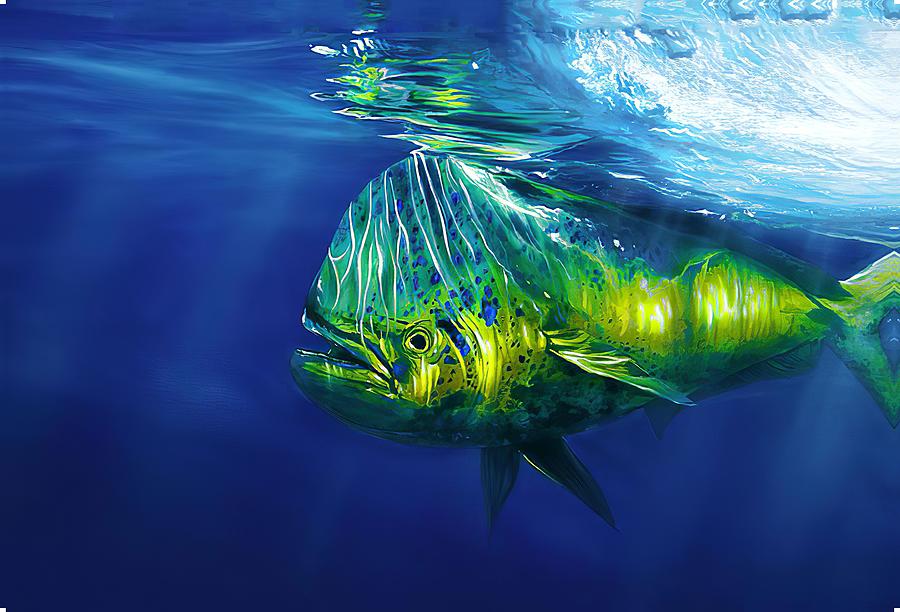Mahi Mahi – A True Work of Art
One of the fastest growing fish in the world!
The Fish With Many Names
Mahi mahi is a Hawaiian name meaning “strong.” This is a very fitting name indeed. If you have ever been on the other end of the line when attempting to bring one in, you well know the screaming rods, line-peeling runs, and tail-thrashing jumps that accompany this brightly-colored blue, green, and gold fish. But the best way to see them is underwater!
There really is no other fish quite like the mahi mahi!
Other names for this fish include dorado (Spanish word meaning “golden”), lampuka, and dolphinfish, although they are no relation to the mammal by the same name.
Range, Habitat, Description
The scientific name for this fish is Coryphaena hippurus. It is a surface-dwelling ray-finned fish found offshore in temperate tropical and subtropical waters.
It is distinguished by a long, thin body with a dorsal fin that extends from its head along the body. The dorsal fin extends almost to the tail. It has golden sides and dazzling blues and greens on the sides and back with a yellow tail.
The mahi mahi is a fast fish and can swim at speeds of 50 knots, or about 57mph.
It is also one of the fastest-growing fish. They can grow several inches a month. Both males and females are sexually mature at 3-4 months of age. Females can spawn two or three times per year, laying between 80,000 and a million eggs at a time. Their lifespan is about four to five years.
Sexual Dimorphism
You can tell apart males from females because males have a protruding forehead. They are referred to as bulls. Females have more typical rounded heads and are smaller than the males.
Conservation
While the mahi mahi is not considered endangered, because of the popularity of its highly desired sweet and mild meat in restaurants and grocery chains, there is growing concern for the impact of commercial fishing tactics on wild popluations.
For now, we can all do our part respecting this beautiful creature in its natural habitat and always following regulations provided by the NOAA Fisheries and local state fishing laws such as those found here.

